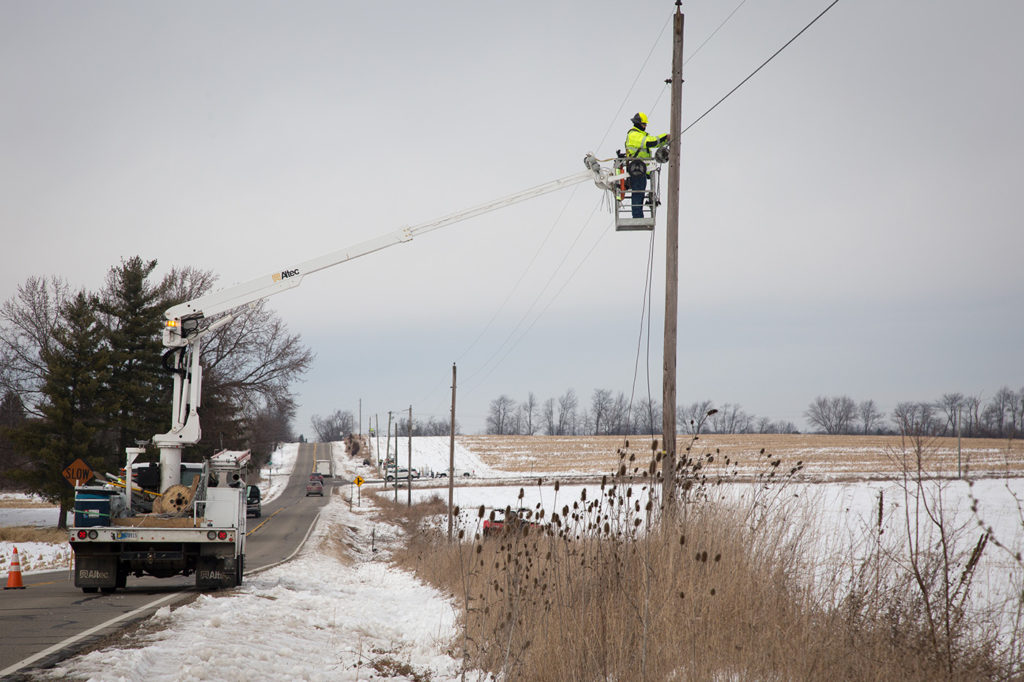
NRECA is urging the Biden administration to review the winners of $9.2 billion in federal funds for rural broadband to ensure they can truly meet their bid obligations.
“We stand up for the 42 million people we serve,” NRECA CEO Jim Matheson said. “When it comes to the unserved, it’s disproportionally rural communities. Broadband may be provided by electric cooperatives or someone else, but we must make sure the technology and the level of service are accurately reflected in the bids.”
Matheson on Feb. 1 sent a letter to the Federal Communications Commission accompanied by a white paper from NRECA and NRTC describing concerns about certain winning bids in the Rural Digital Opportunity Fund Phase I and offering remedies if an FCC review finds winners unable to meet their commitments.
“Our focus is on making sure that every unserved American has access to reliable and robust broadband that will meet not just their needs today but also into the future,” Matheson wrote. “NRECA and our member cooperatives stand ready to work with the FCC and other stakeholders to make sure RDOF Phase I is a success and to move forward with planning for phase II.”
The RDOF I, as the FCC’s largest broadband auction to date, is expected to connect 5.2 million unserved homes and businesses. The money will be distributed over 10 years as winning internet service providers achieve certain coverage milestones. Detailed technical and financial broadband deployment applications by the winning bidders were due Jan. 29.
To ensure the validity of all bids, NRECA recommends that the FCC first reject those the commission deems unable to meet their commitments. The FCC could roll money from any rejected bids into the future RDOF Phase II auction or hold a RDOF Phase 1.5 auction of these funds soon to ensure affected census blocks get served as quickly as possible.
Electric co-ops won bids totaling $1.6 billion to serve nearly 1 million locations in 31 states, largely to build fiber-optic cable networks. Fiber offers internet service with extremely low latency or interruptions and is easily scalable to speeds of one gigabit or more.
Some RDOF winners offered lower bids with unproven technologies. These include fixed wireless companies that promise gigabit service in heavily forested or mountainous areas and a low-Earth orbit satellite delivery project still largely in beta testing by Elon Musk’s SpaceX.
“There are a lot of winning bids we are concerned about,” Matheson said in remarks discussing the RDOF. “This money is not there to fund a science experiment. It’s to fund broadband for rural Americans.”
RDOF winners that fail “will put people in rural America in substandard service for a long time. Because when that federal money is spent, there is no other money for that census block for a decade,” he said.
On Jan. 19, 160 senators and House members from both parties sent a letter to the FCC asking that RDOF winners be vetted to ensure they can fulfill their bid requirements.
Cathy Cash is a staff writer at NRECA.